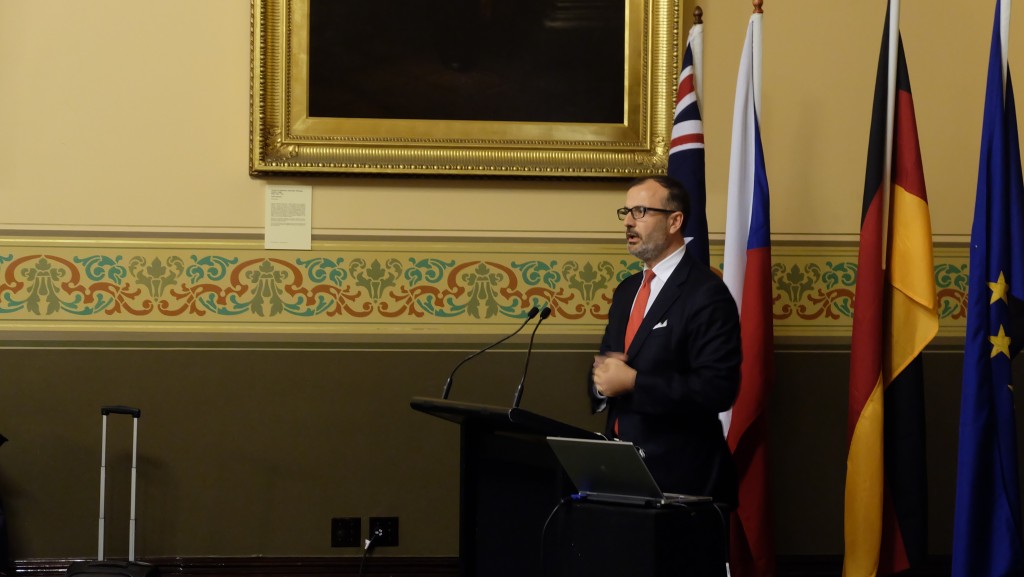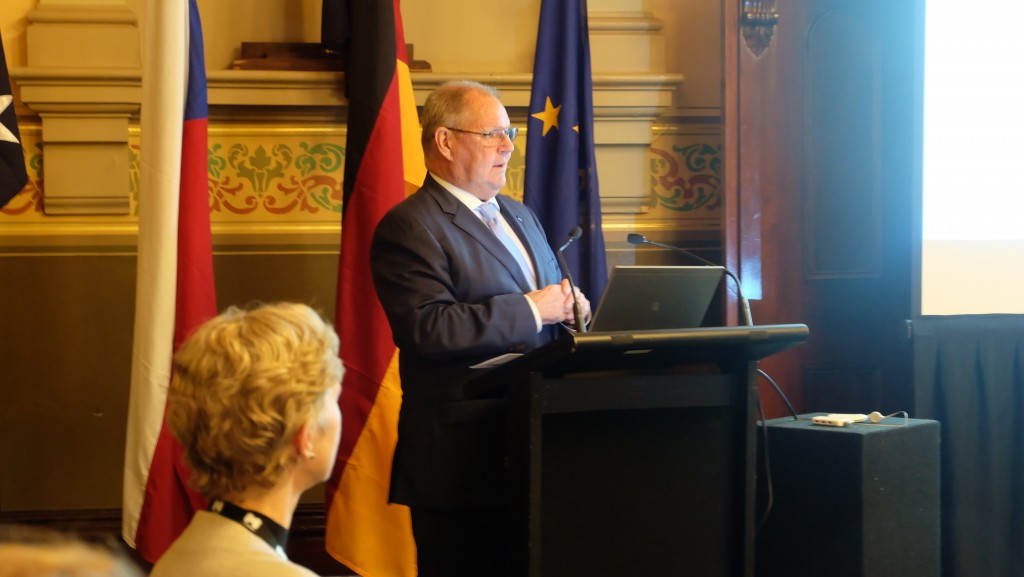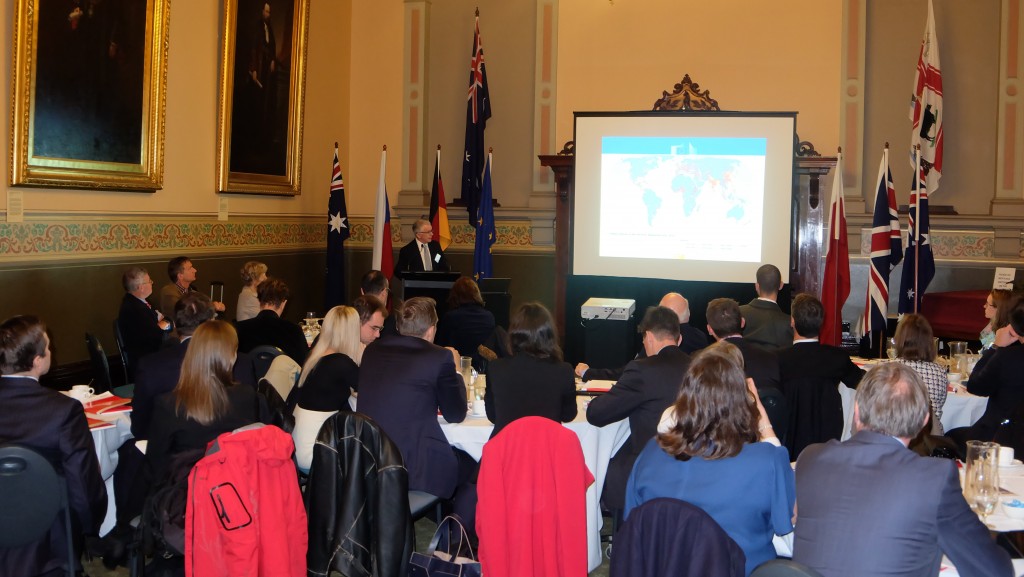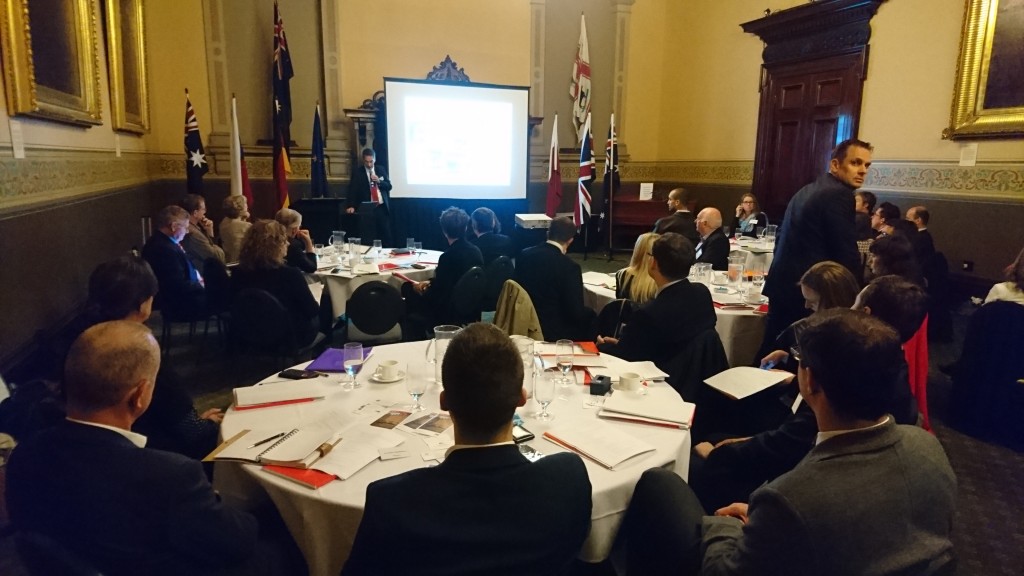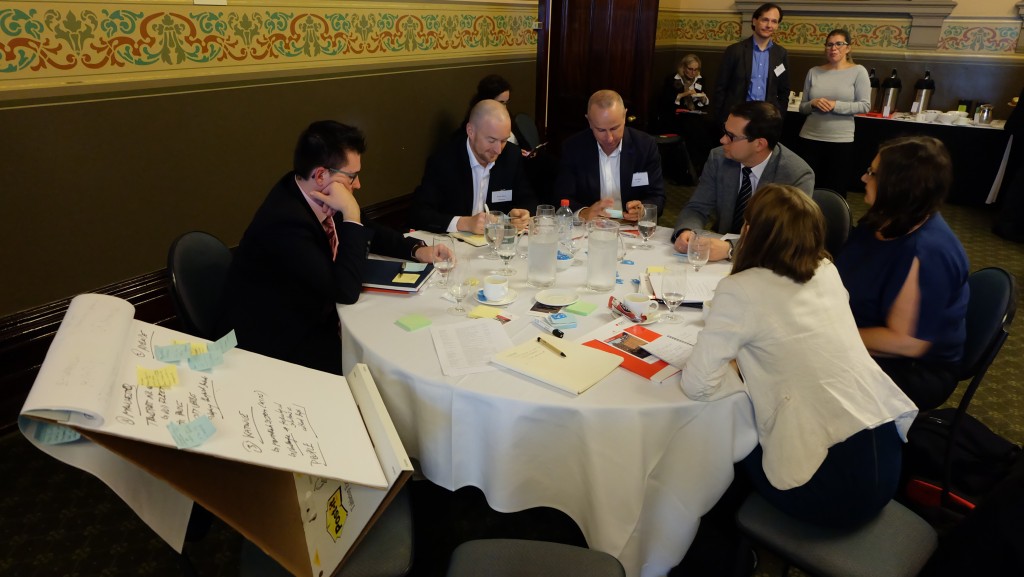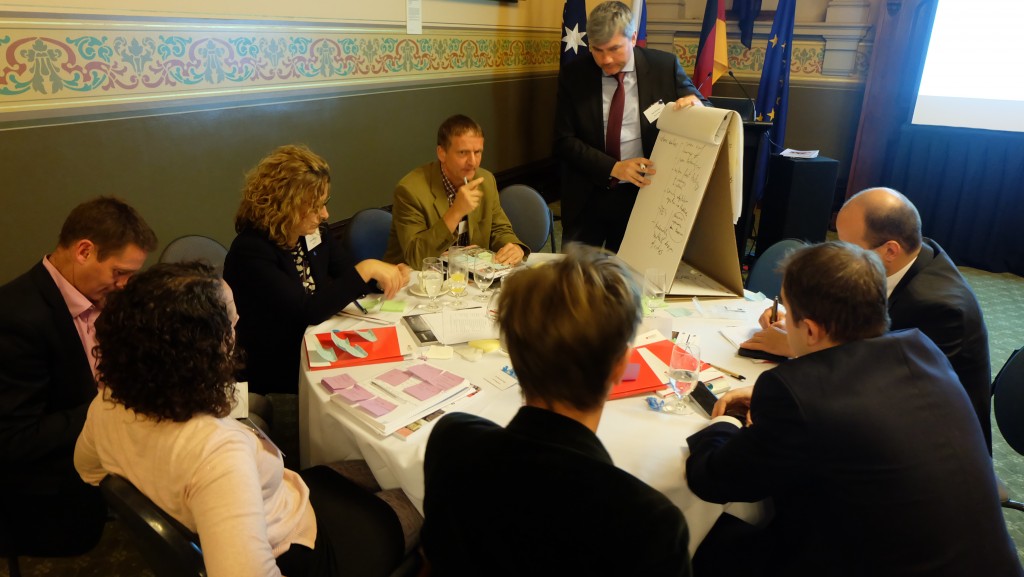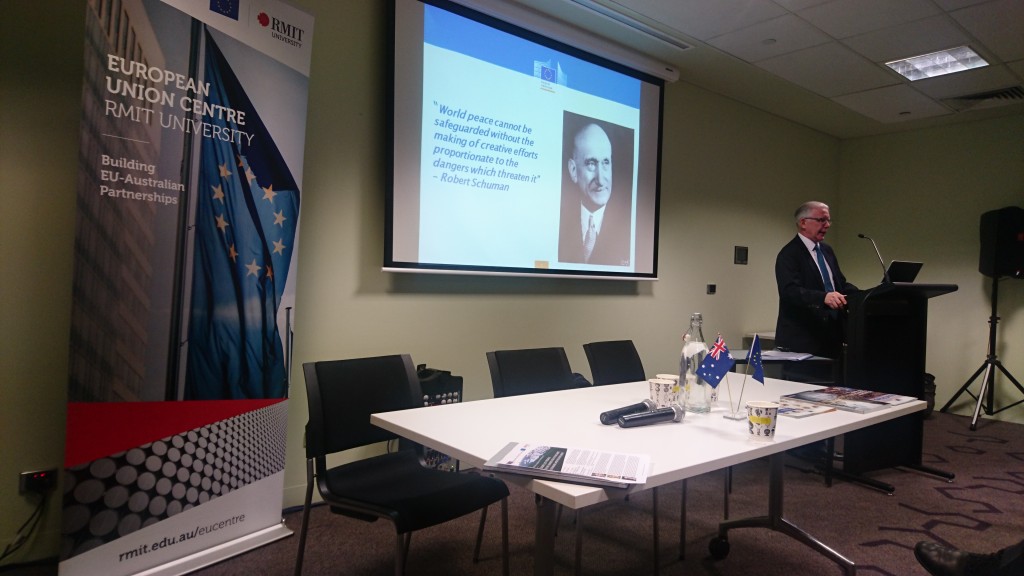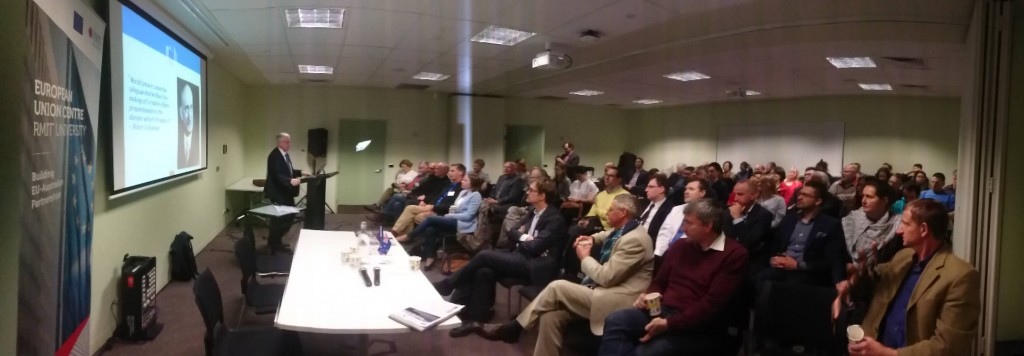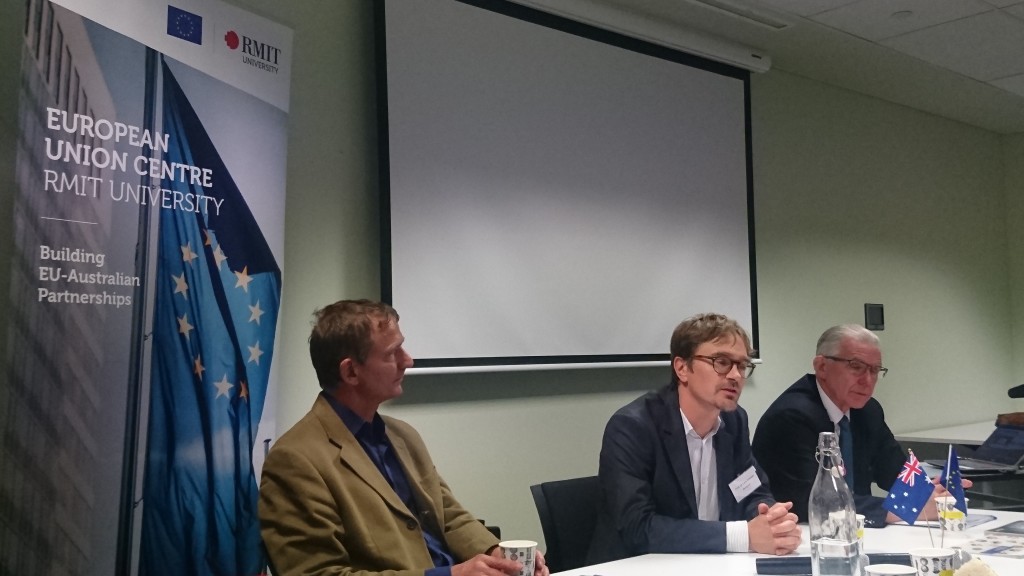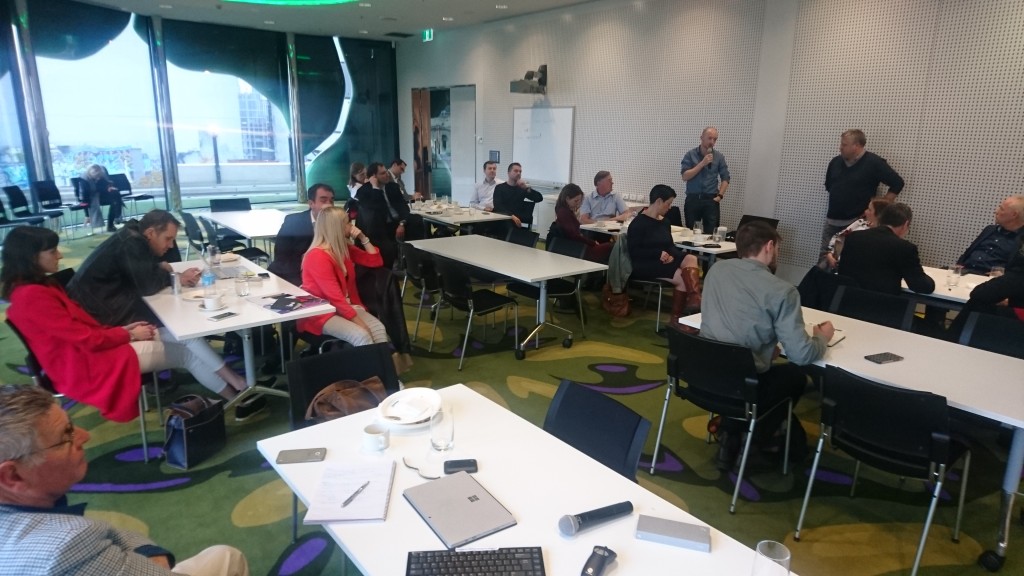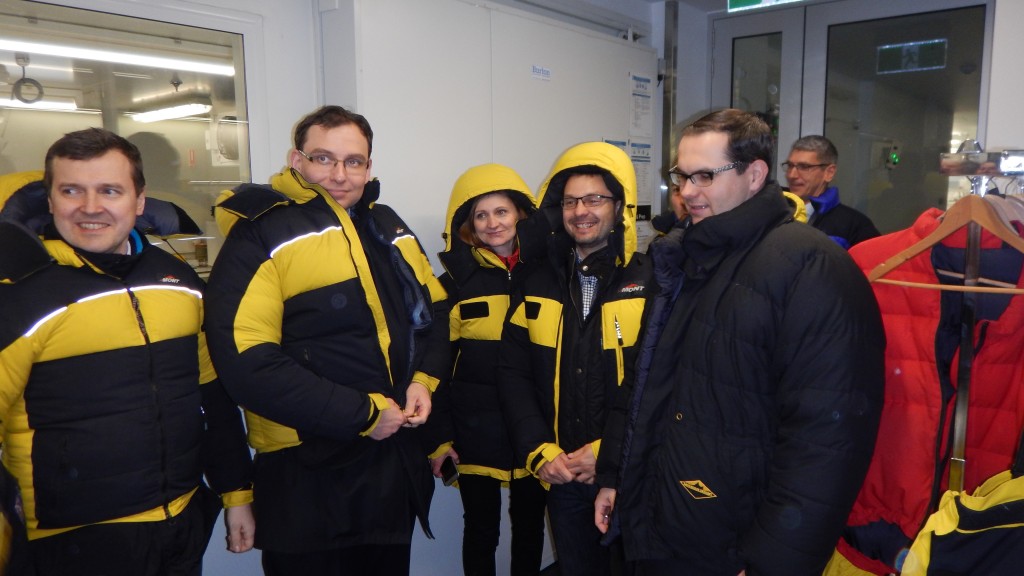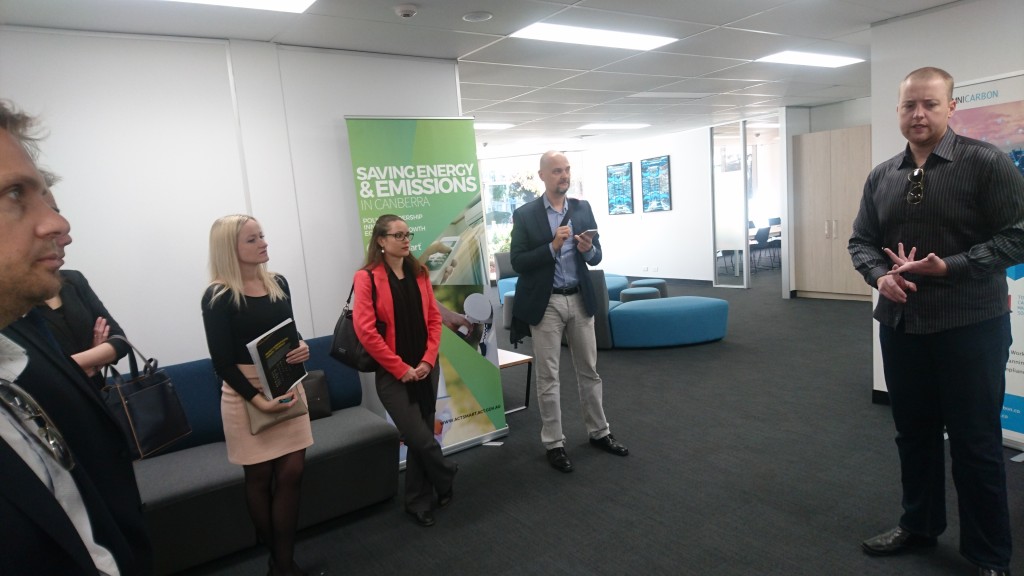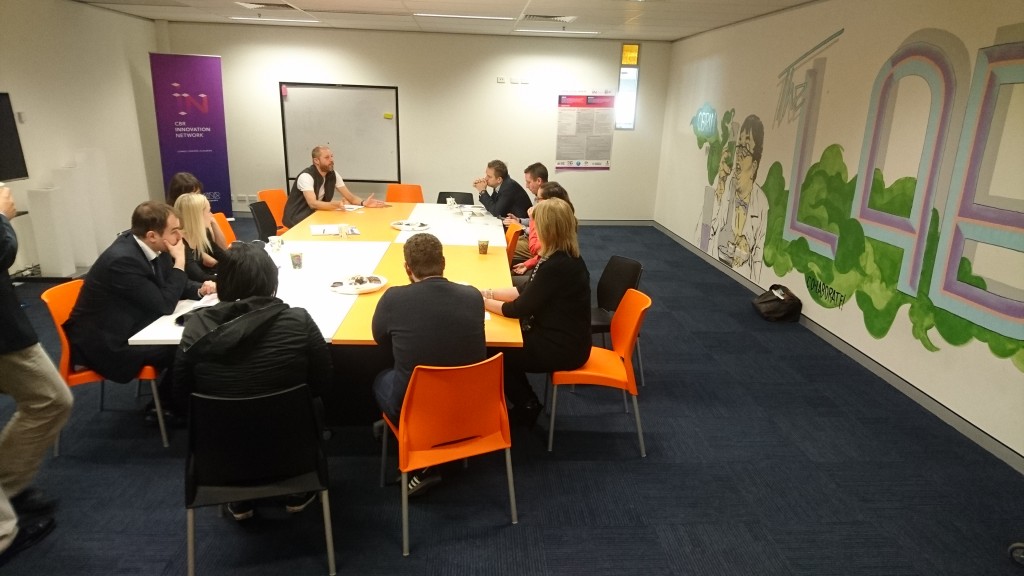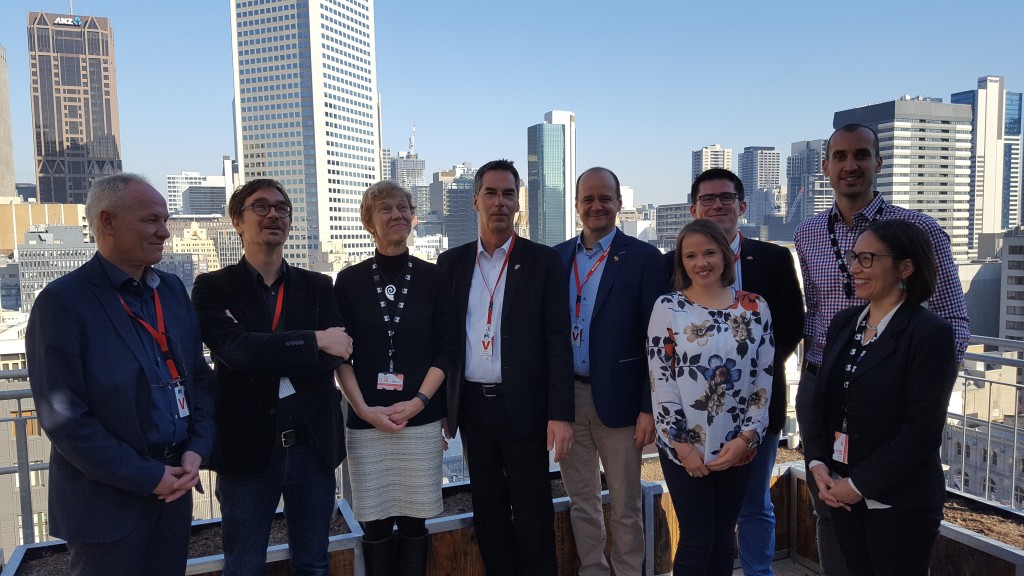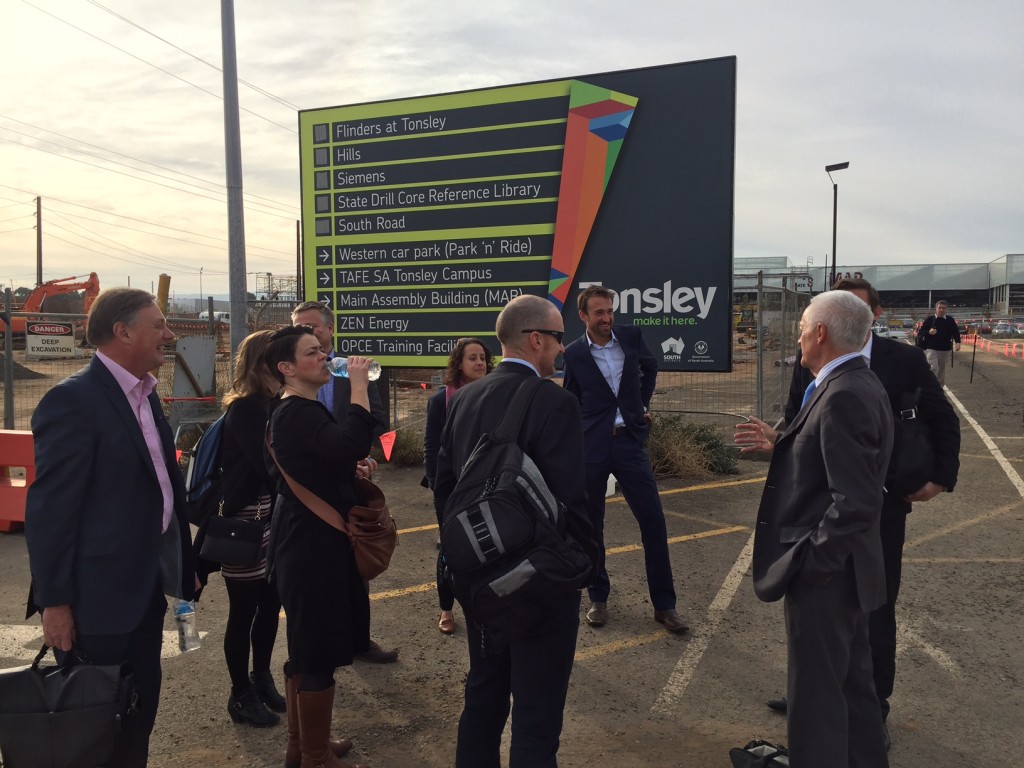EU’s WORLD CITIES PROJECT PAIRS ADELAIDE, CANBERRA, HOBART AND MELBOURNE
WITH FOUR TOP EUROPEAN CITIES
TO SHARE BEST PRACTICES IN SUSTAINABLE URBANISATION
Melbourne, 08.05.2017: Four Australian cities – Adelaide, Canberra, Hobart and Melbourne – are being paired with four European cities – Hamburg (Germany), Katowice (Poland), Manchester (UK) and Prague (CZ) – under the World Cities project. This European Union (EU) initiative – supported by the European Parliament – promotes long-term working relations between cities of the EU and cities in other countries, such as Australia, with whom we share a strategic partnership.
The overall aim of the project is to promote better urban policy and thereby improve the quality of life in participating cities. The cooperation agenda with Australia started with the identification of pilot cities and goes on with the development of concrete actions for implementation. This covers, for example, urban innovation (the smart city) and green technologies (energy efficiency, low carbon development). Actions are designed to increase so-called ‘triple-helix cooperation’ between governments, research and business. World Cities will also create opportunities for business and new jobs while pursuing the sustainable development of the cities involved.
The initiative was launched at the Kick-Off Meeting held in Melbourne today in the presence of the Lord Mayor of Melbourne, Mr Robert Doyle, 20 European city delegates and senior officials of the local authorities from Adelaide, Canberra, Hobart and Melbourne.
The EU was represented by H.E. Sem Fabrizi, the EU Ambassador to Australia, and Dr Ronald Hall, Principal Advisor, EU Directorate General for Regional and Urban Policy, Brussels, in addition to other senior officials and EU experts. EU Member States were represented by high-level representatives of the diplomatic missions from Germany and the United Kingdom to Australia.
This programme will provide a unique opportunity to the four Australian cities to collaborate and learn from the experiences of South Korea, South Africa, Indonesia and Vietnam, who are the other country partners for the EU for the World Cities project.
Dr Ronald Hall, Principal Advisor, EU DG for Regional and Urban Policy, underlined, “In both, Australia and the EU, we realise that our policies for economic and social development will be successful only if they are successful in our cities. This is why it is important that we share our knowledge and experience on urban policy, and our examples of good practice in fields such as urban transport, energy efficiency, urban-rural relations and good urban governance. EU regional and urban policy invests over 50 billion euros annually in supporting European regions and cities and we, on our side, are keen to share the results of this experience. Our aim is to support decentralised cooperation between EU and Australian cities in an effort to address more effectively the major urbanisation challenges of the 21st century”. Additionally, Dr Hall spoke of the new EU Urban agenda in accordance with the UN Habitat III and its continuous effort to further promote the international outreach of EU’s urban agenda, especially with the Australian partners.
The launch event:
The day-long launch event served to further strengthen the ties between EU and Australia, and helped develop the way forward for EU-Australia cooperation on sustainable urban development.
In the conference, over 40 representatives from the EU and Australian cities focused on the way forward regarding Smart City (transportation, ICT, safety), Urban Economy (innovation, clusters, start-ups), Climate Change (low-carbon, green energy, resilience) and Urban Regeneration (cultural heritage, green spaces, affordable housing).
The conference was attended by representatives from the national and local governments, private sector, non-governmental organisations, universities and other stakeholders.
EU and Australian sides then exchanged information and identified relevant urban development areas for cooperation during the period May 10-12 in the hosting cities of Adelaide, Canberra, Hobart and Melbourne.
Impressions
H.E. Sem Fabrizi, EU Ambassador to Australia
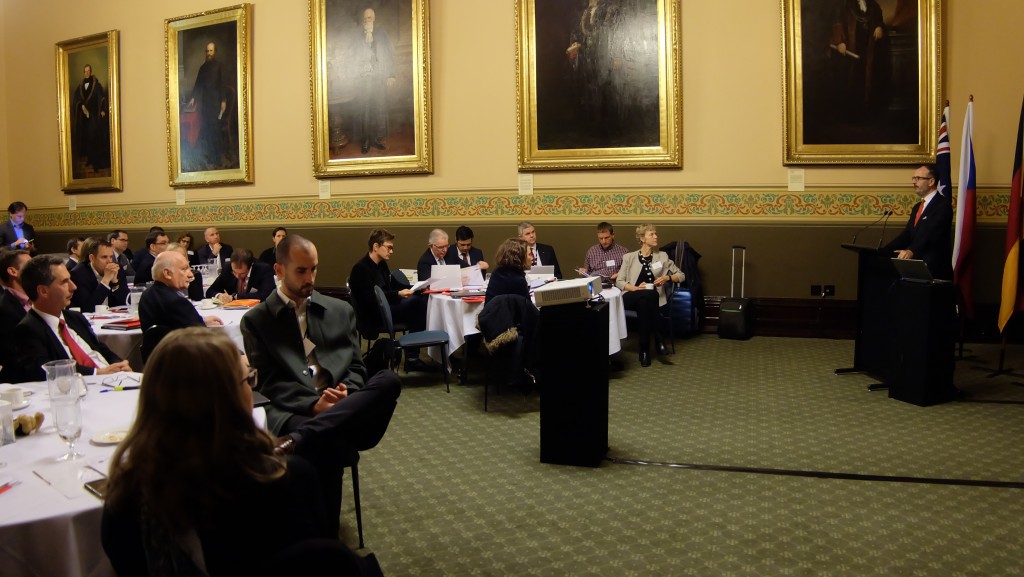 H.E. Sem Fabrizi, EU Ambassador to Australia
H.E. Sem Fabrizi, EU Ambassador to Australia
Welcoming speech by the Lord Mayor of Melbourne, Mr Robert Doyle
Key Note by Dr Ronald Hall, Principal Advisor, DG REGIO
Plenary Working Session 1
Working groups sessions
Working groups sessions
CELEBRATION OF EUROPE DAY
On Tuesday 09.05.2017, the EU Centre at RMIT organised the seminar “EUROPE’S CITY-REGIONS: THE KEY DRIVERS FOR A FUTURE SMART, SUSTAINABLE AND INCLUSIVE EUROPE”. The event reflected on the varying contributions of European city-regions to building a smarter, more sustainable and inclusive Europe, and how their roles will evolve over the next decade. The key speakers at the event were Dr Ronald Hall (DG REGIO), Professor Lars Coenen (City of Melbourne Chair of Resilient Cities) and Dr Joe Ravetz (Co-Director of the Centre for Urban Resilience & Energy at the University of Manchester). The event involved more than 70 participants from several civil society areas.
Dr Ronald Hall’s Key Note at RMIT during the Europe Day
Dr Ronald Hall’s Key Note at RMIT during the Europe Day
Panel discussion at RMIT
Debriefing session in Melbourne on 12.05.2017
Programmes
The programme of the World Cities launch event and an overview of the bilateral meetings in Adelaide, Canberra, Hobart and Melbourne can be downloaded below. Also the workshop programme for the celebration of Europe’s Day on Tuesday 09.05.2017 is available.
Draft Agenda in Australia with delegates_20170507
FINAL 09.05.2017 Europe Day City regions
BILATERAL SESSIONS
European cities representatives from Hamburg, Katowice, Manchester and Prague absolved an intensive programme in their corresponding pairing cities (Melbourne, Hobart, Adelaide and Canberra respectively). The programmes can be downloaded here.
02_Hobart_Katowice May 2017 v1
04_Canberra_Prague Agenda (Draft 20170502) – A13540494
Impressions
Visit of Katowice delegates at the Laboratory of the Institute of Marine and Antarctic Studies (IMAS) in Hobart
Meeting of Prague delegates at the Renewables Innovation Hub in Canberra
Meeting of Prague delegates at CBR Innovation Network in Canberra
Group picture of Hamburg delegates with colleagues from Melbourne city administration
Field visit of Manchester delegates at Tonsley in Adelaide
CLICK HERE FOR TV-COVERAGE IN CANBERRA
Documentation
Agenda in Australia with delegates (2017 05 05) v2 FORMATTED
00_Australia World Cities launch RH final
01_Melbourne_City_Strategy_and_Place_-_10_minute_version_presentation
08_World Cities Manchester Presentation (Final)
OVERVIEW OF ONGOING COOPERATION (May 2017)
Katowice – Hobart
Energy Efficiency and Climate Awareness:
- Increasing the presence of electric vehicle in modal transport in Hobart and Katowice
- Engaging communities across Hobart and Katowice to effect sustainable urban development that is energy efficient and climate aware and active
- Increase energy efficiency by knowledge transfer and shared experience
- Ensuring access and opportunity for energy efficiency across all sectors of community
- Actively sharing climate knowledge, awareness and experience from research to community
Start-ups and clusters:
- Through shared experience knowledge and cooperation expansion create the opportunity for clusters and start ups
- Exploration of cloud sourced equity funding
- Virtual experience to expand exposure of start-ups and clusters between the Northern and Southern Hemispheres
Governance for big and small:
- Comparative analysis of governance arrangements and experience that facilitate engagement with and participation by communities
Creativity and music:
- Sharing of knowledge and experience to foster musical creativity and opportunities for engagement across all ages
- Interactive technologies for the transference of creativity and musical experience
- Virtual creative and musical study tour
- Artist exchange hosted through MONA mentoring and fostering virtual and physical performance
Prague – Canberra
- Innovation: The Canberra Innovation Network (CIN) would deliver a “start ups and accelerator” workshop in the innovation hub in Prague in September 2017.
- A Czech innovator or program leader (preferably from the EU Space Agency innovation centre) will be invited to deliver a talk or workshop via webcam to a gathering at Canberra’s University of New South Wales. We anticipate up to 200 people gathering in Canberra for that event
- Develop an exchange program – where each city would offer a ‘scholarship’-type grant to an innovator/entrepreneur to travel to the other city for up to one month to progress one of their commercial ideas. This could be anything from continued development in partnership…through to chasing actual deals. Participants could be chosen through a ‘pitch panel’ similar to the process entrepreneurs go through for attracting angel capital investment.
Manchester – Adelaide
- Smart City: Cooperation within Adelaide’s Cisco Lighthouse Program (Smart Lighting)
- Cooperation within the EU programmes Triangulum (H2020) and Smart Impact (URBACT)
- Innovation: Exploring exchange of innovative urban apps developers from Tonsley – Australia’s First Innovation District – and Manchester’s CityVerve
- Climate Change: Cooperative Research Centre for Low Carbon Living and Climate KIC
Hamburg – Melbourne
Main areas:
- Planning, data and smart: how to use data to support better urban development, planning processes and decision making (Melbourne provided first draft ideas)
- Digital community interface and living labs: how we can use these to test ideas, make information about places accessible to community and support community engagement and participation? (Hamburg to provide first draft ideas)
- Governance arrangements for projects with multiple stakeholders. (Universities interest)
Planning, data and smart:
- City of Melbourne strives to strategically use (and share) data to support and inform quality outcomes in planning for our growing city. Resilience and quality outcomes are enhanced when there is integrated thinking, planning and systems across sectors and levels of government.
- There is potential to improve data collection, access and analysis to meet the needs of our community and our city. Visualisation tools that allow us to communicate where our city has been, where it currently is and what it could be would enable us to tell a potentially complex story in a simple way.
- Cooperation areas:
- Customer first, Digital first – Identify customers (e.g. community, developers, levels of government, internal CoM departments, universities etc.) of the data and what their individual needs are
- Strategy, policy and potentially planning controls linked to up to date data platforms and/or sources
- Provide a strong evidence base for decision making – enhance our influence and justification
- Ensuring data is reliable, accessible, current – but automate – be smart about the collection – real time data collection
- Using the right systems for the job, systems that talk to one another
- Make the most of predictive tools, scenario settings and analysis
- Visualisation that allows people to see how planning decisions will impact their lived experience of the city – visualise with community
- Inform and direct private sector partners
- Visualise all council assets, works, planning and built form controls
- Relevant initiatives
- Land Use Infrastructure Planning
- Census of Land Use and Employment (CLUE)
- Smart Planning
- Open Data
- 3D DAM
- Sensors
- Expected outcomes:
- Exchange information about strategies, policies, tools used by both cities
- Explore opportunities for joint research / projects where there are common challenges or gaps
- Explore opportunities for joint ventures for developing smart city apps
- Involve Melbourne in further relevant EU programmes coordinated by the City of Hamburg (H2020, URBACT, etc.)

